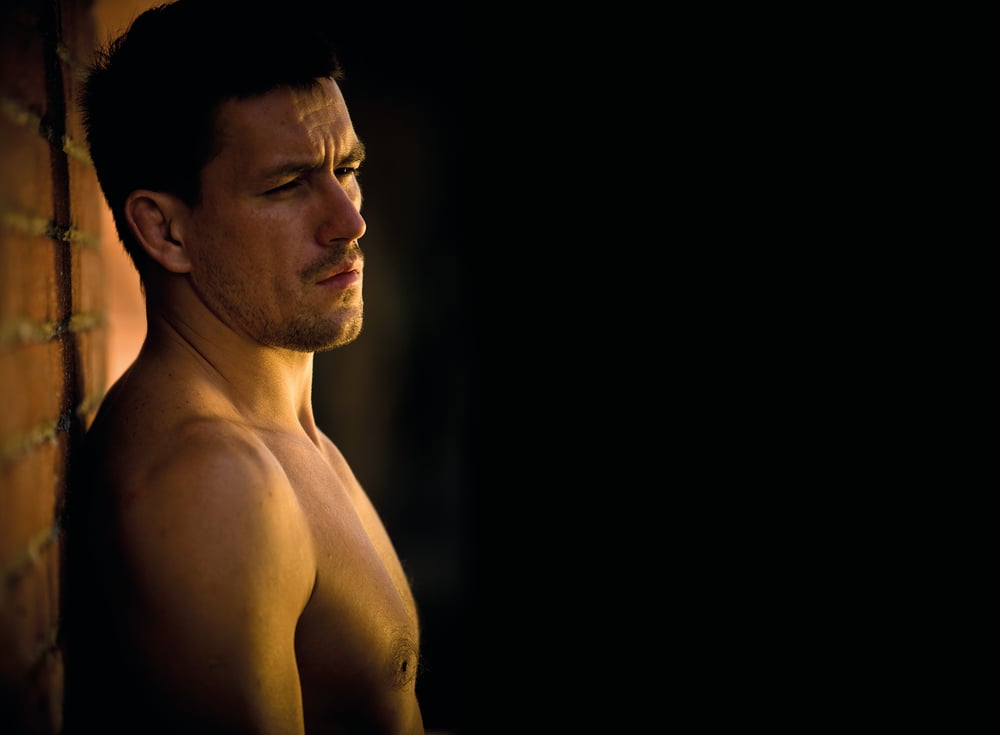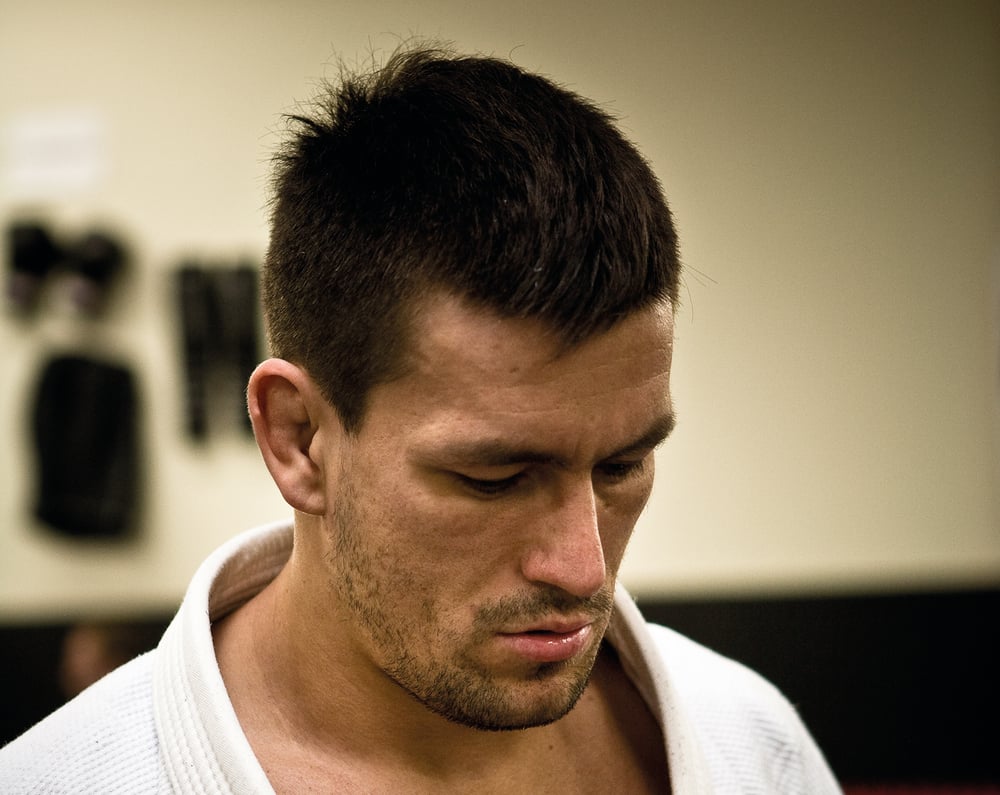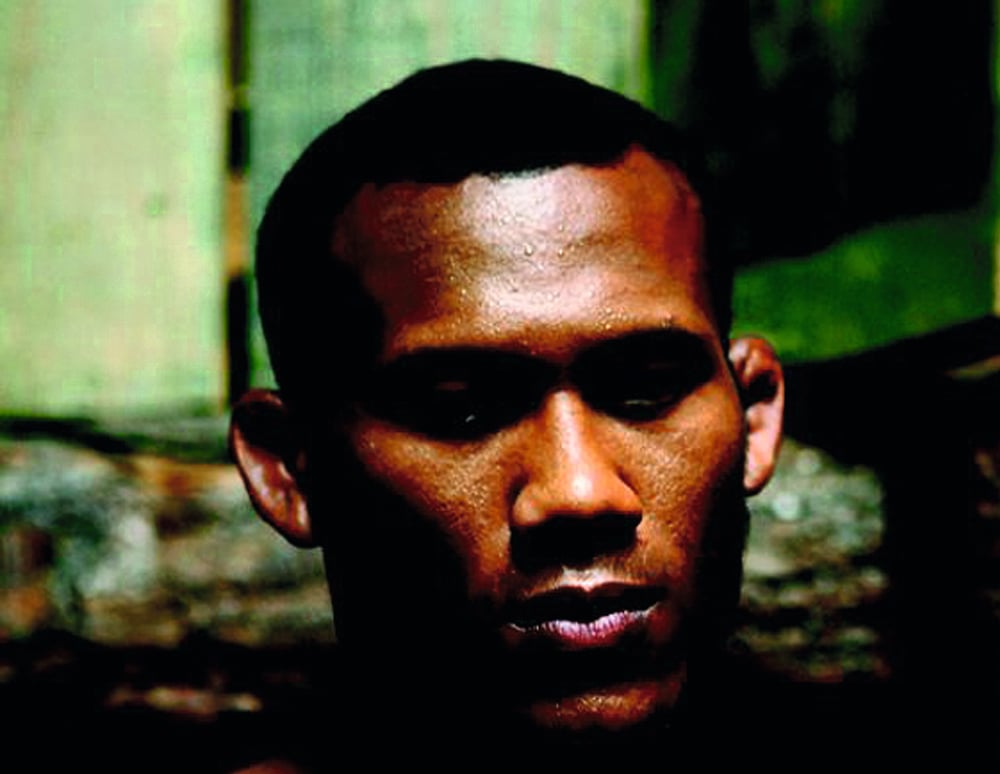
Issue 053
August 2009
If you were asked to name the top grapplers in MMA right now, the chances are that Demian Maia’s name would be among the first on your lips.
The submissions specialist’s string of victories inside the UFC Octagon has piqued the interest of fans. How, after we were led to believe that well-rounded fighters ruled the game and that one-dimensional competitors were a thing of the past, could a man who seemed like little more than a jiu-jitsu stylist come in and claim five straight victories against a string of very credible opponents?
Because Maia is no ordinary Brazilian jiu-jitsu stylist. Fighting four times for the UFC during 2007 and 2008, he defeated the tough Team Quest scrapper Ryan Jenson, warhorse Ed Herman, Canadian all-rounder Jason MacDonald and the heavy-handed Nate Quarry, all by way of choke. He began 2009 with a bang by submitting his fourth opponent from Team Quest, Chael Sonnen.
It is easy to see why Demian Maia was voted by readers as the Fighters Only Breakthrough Fighter of the Year last year. A born and bred Paulistano (someone who is from Sao Paulo), the 31-year-old is a jiu-jitsu world champion and has won titles at all levels of the game. He won the prestigious Abu Dhabi Submission Wrestling World Championship in 2007, proving he isn’t reliant on the traditional jiu-jitsu garb of the gi (also known as the kimono). Simply put, this guy has upper-echelon grappling ability. If jiu-jitsu were in the Olympics, Maia would most likely hold a medal by now.
Undefeated at 10-0-0, Maia’s ability as a grappler isn’t in question. Even Dana White is in awe of his jiu-jitsu, saying “He’s got sick fight jiu-jitsu and that’s important. There are a lot of guys who are great at sport jiu-jitsu, but put them in a fight and they’re going to get the shit beaten out of them. But Demian has fight jiu-jitsu and it’s real good.”

Ten years ago everybody talked about cross-training. This referred to the act of training in more than one discipline or fighting style. For example, kick boxers would train wrestling to improve their takedown defense, and wrestlers would train in jiu-jitsu to become aware of, and accustomed to, submissions.
Maia cross-trains like any other modern MMA fighter, but is as close to a pure jiu-jitsu fighter as you might find. He has trained in jiu-jitsu since his teen years, so it is unsurprising that he holds such a deep affinity for the art.
When we speak to him, it is shortly after the Brazilian jiu-jitsu 2009 World Championships in San Diego. After a busy weekend of coaching his students and watching some of the best BJJ in the world, Maia is keen to talk about the sport he holds so dearly. “I love jiu-jitsu, being a world champion is very nice for me. I have a lot of friends in the jiu-jitsu community. Everyone travels together, competes together. The jiu-jitsu culture is very healthy,” he says. He admits to missing it somewhat, especially the tournament circuit. “This year, I had a desire to compete,” he tells us, “Going to the tournaments as a world champion, it is very special to me.”
His remarkable talent has highlighted him as a contender in the stacked middleweight division. Brazilian fighters are currently enjoying an upswing in momentum and popularity, with title-holders and contenders in almost every weight class, and Maia is one of those who everybody seems to be looking at.
The product of an average family, Maia’s father is a musician and his mother used to sell clothes. Maia was fortunate enough to receive a good education and even holds a degree in journalism. “We didn’t have too much money, we had financial problems when I was very young, but I was able to study in good schools because my mother knew a lot of people. I got to study for free in some very good schools in Brazil,” he says. “I was not sure what I wanted to be, I was not sure if I could [do jiu-jitsu]. I always wanted to be a professional athlete, always, but I did my studies, college, university, just in case. I didn’t know what was going to happen. Things went in the right way.”

Maia’s journey into the MMA world began properly in 2005. Though he has an unrecorded fight to his name from 2001 (a vale tudo style fight in Venezuela against a 125kg wrestler) he fought professionally in Scandinavia four times during 2005 and 2006, making his debut on American soil in 2007. Shortly after, the UFC picked him up and the rest is common knowledge. “People said it was very different [fighting in MMA], but I felt I could do jiu-jitsu in there. With the kimono or without, what I was going to do with the gloves it was pretty much the same.”
During his time in the UFC, he has hooked up with fellow Brazilian Wanderlei Silva and represents the Wand Fight Team when he steps into the Octagon. He regularly goes out to Silva’s Las Vegas gym for fight prep, and the exposure to Silva’s distinctive Muay Thai style has been evident in his last few fights. Maia looked far more aggressive in the stand-up against Chael Sonnen, chasing him down with punches and kicks before locking on a tight triangle choke. But for all the cross-training he does, Maia is still a jiu-jitsu guy at heart. “If you want to train boxing or Muay Thai, it’s nice and effective, but if you want to train hard, you get hurt. You can train hard in jiu-jitsu every day.”
The problem is that anyone at 185lb who starts to shine is immediately analyzed as a potential opponent for the embedded champion, Anderson Silva. Does he have the level of grappling skill required to take out The Spider? Maia believes so, but he has a tough test ahead of him before he can start looking forward to a fight with Silva.
Maia’s next bout will be against Nate Marquardt in August. They will meet at UFC 102 in Portland, Oregon, and Maia readily admits that Marquardt will be his toughest opponent to date. “He is a jiu-jitsu black belt, a very good striker, has a good heart and good stamina,” he says. “No doubt he is the biggest test for me. I never asked for the fight, I just want to be a champion, but I’m excited because I like to test myself.” So if he beats Marquardt, does he think he’ll be ready for Silva? “If I beat Nate, I’ll be ready to challenge him.”

With his excellent jiu-jitsu and his five successive submission wins, Maia is considered one of the best grapplers currently active in MMA. Though he claims to never fight with a strategy in mind, it’s no secret what Maia’s objectives are: get the fight to the floor and get them to give up. “Everybody knows about my ground game,” he says with a shrug. “But if I go to fight Anderson, I should be aware of his submissions.” Hang on. He’s saying that if he meets one of the best strikers in the business, he’s going to be worried about his submissions? “Everybody knows everything now,” he says knowingly.
He’s right, too. Silva may only have four submission wins to his name (three via strikes) but he choked Dan Henderson and trapped Travis Lutter in a triangle. As Maia has shown by working on his striking, you’ve got to be well-rounded and can’t afford to be one dimensional any more, but when pressed on who he thinks could be a threat with their jiu-jitsu, the response is almost off-hand. “I don’t see anybody outstanding,” he says.
This remark could be taken as arrogance, though Maia is anything but. His cool-as-ice style isn’t reserved to the ring – it’s simply his personality. Even still, he admits to getting nervous before a fight. “Every fight I am nervous, even more so in jiu-jitsu. Everyone wants to win so much, you don’t want to lose.
“I am never angry. I am very cold when I compete. I don’t have any feelings, I am never angry or have fear. Nothing. I think I have this because I am a calm person, it’s my personality.”
With his cool demeanor, his next-level jiu-jitsu and improving striking, Maia is in a strong position. Should he overcome Marquardt in August, a fight with Silva is almost a certainty, but he’s in no rush. “[Silva] is beating everybody and he’s the best in the world,” he says. “I know the title will come one day. I’ve always felt I would go to the top level. I did this in jiu-jitsu and I knew I could do this in MMA also.”
MAIA ON JIU-JITSU
“Jiu-jitsu is more professional now, people stay in it, but it used to be everybody wanted to go into MMA. The development of jiu-jitsu was about MMA, the challenge fights and everything. We grew up thinking about BJJ as self-defense, not just as a sport. This is changing now, people just want to do sport jiu-jitsu.
“Before, we tried to show that we were the most effective martial art. We don’t have to prove the effectiveness any more, that was already done by guys like Royce, Helio, Carlson. After this, everybody started training in jiu-jitsu. If you want to be successful in MMA, you want to be a good fighter, you need to be at least a blue or purple belt level in jiu-jitsu.”

DEMIAN MAIA'S FAVORITE JIU-JITSU FIGHTERS IN MMA
BJ Penn
“BJ for sure. I saw him win the world championships in 2000 in Brazil as a black belt, the same year I won as a purple belt. He is very talented, very good. I like to see him fight.”
Jacare
“I’ve fought him twice [in jiu-jitsu and grappling], I won one and I lost the other. He is my friend, I would prefer not to fight him [in MMA], plus he fights for another organization.”
Minotauro
“He was one of the first guys to use a very effective bottom game, he is an idol for anybody who trains jiu-jitsu and fights MMA.”
Demian Maia spoke with Hywel Teague










